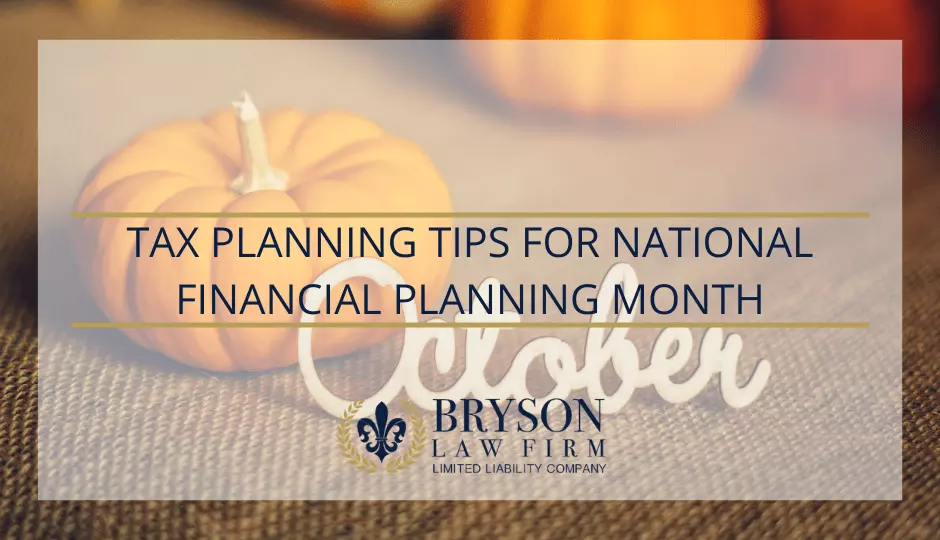Establish a Relationship with a Tax Professional
In our experience, the key to successful tax planning involves onboarding a Tax Professional to assist you in your efforts. Tax Professionals can ensure that you know what you should be doing throughout the year for tax planning purposes. They can gauge your tax bracket and the available deductions and tax credits you may be eligible for to create a comprehensive tax strategy to help reduce your tax bill. The IRS offers an online directory of Tax Return preparers so you can ensure the Tax Professional you select has the credentials and qualifications you need. Once you’ve established a relationship with a Tax Professional, have a “meeting of the minds” on your plans and expectations moving forward. How often would it make sense to check in for updates? How frequently should you connect with your Tax Professional for Tax Planning sessions? What steps should you take each year to maximize your tax plan’s success and when? Once a plan is established, ensure you and your Tax Professional both execute the plan throughout the year. Schedule monthly, quarterly, or bi-annual check-ins, and update them throughout the year of any major events. Your Tax Professional should be kept up to date on big expenses, any unexpected income, etc. to ensure they craft the most comprehensive Tax Plan possible.
Determine Whether You’ll Itemize or Take the Standard Deduction
Your Tax Professional can assist you in estimating whether it will be more beneficial to itemize or take the standard deduction. If the standard deduction makes the most sense for you, you’ll be able to cut down on the time you spend tracking expenses and organizing records. If your estimated expenses indicate that itemizing your tax return makes more sense, it will be important to track your tax records throughout the year. Your Tax Professional can let you know what type of records to keep track of and can assist you in ensuring your maximizing all available deductions, exemptions, and credits.
Keep Track of Your Tax Records Throughout the Year
It is so much easier to plan for tax time by tracking your income and expenses throughout the year vs. tracking down and compiling everything in April. Figure out how frequently you feel you should reconcile your records to keep up and to ensure the details are still top-of-mind (make notes!). This is especially relevant for self-employed individuals and those Taxpayers who itemize deductions. Establish a filing system, whether that be via paper filing or electronic filing. Connect with your Tax Professional to determine deductible expenses you may be entitled to, so you know what to keep track of. You’ll need receipts and documentation to back up expenses claimed and to substantiate your deductions in the event of an audit. Create folders for each category (vehicle expenses and mileage, medical expenses, charitable contributions, etc.) We always recommend a back-up. If you keep paper copies, scan/photograph them, too. If you keep all records electronically, ensure your information is backed up.
Take Advantage of Funding an Account that Helps on Taxes
Consider investing your money into a 401(K), IRA, 529 account, FSA, or HSA. You can invest up to a set amount into a 401(K) each tax year directly from your paycheck tax deferred. Contributions to an IRA are often tax deductible, and you typically have until the April filing deadline to fund an IRA for the previous tax year. 529 accounts are great if you have children – you can deduct certain contributions on your State taxes while also saving your child’s education. FSA and HSA accounts enable you to place funds up to a certain amount tax-free into an account for use on certain medical and dental expenses and health/medical items.
Plan for Tax Balances
This is especially notable for us, as we assist hundreds of Taxpayers each year in resolving an outstanding tax liability that they were not prepared for. Tax planning can help mitigate surprise tax bills at the end of each year. Evaluate W-4 withholdings to ensure enough is being withheld based on the particulars of your tax situation, determine in advance whether you’ll be able to claim dependents, estimate the potential tax implications of selling assets such as property, stocks, etc. If you’re self-employed, be sure you work with your Tax Professional to periodically calculate any necessary Estimated Tax Payments you should be remitting throughout the year.
Don’t wait until April to think about your taxes. Tax planning throughout the year can help you to ensure that your tax burden is no greater than it needs to be, it keeps you from experiencing IRS surprises and issues, and helps you better plan for the future. Interested in learning more about tax planning? Contact Bryson today.























